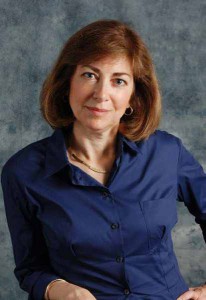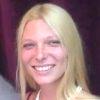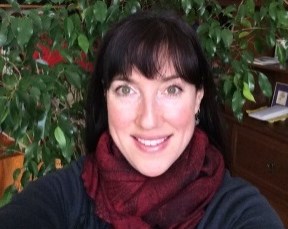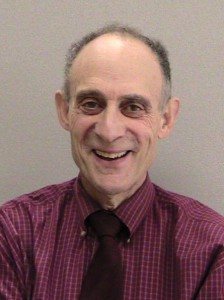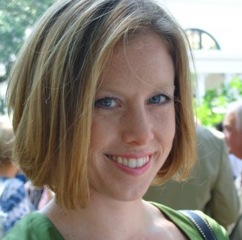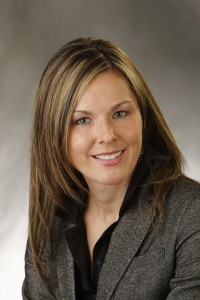To be presented at the ACRM 91st Annual Conference: Progress in Rehabilitation Research
2014 Sheldon Berrol Memorial Chautauqua: A Call to Action for Health Disparities
Join Us! Thursday, 9 October 2014 from 1:30 PM – 3:00 PM
The Sheldon Berrol Chautauqua is the BI-ISIG special annual venue in which we address timely and sometimes controversial issues. Named to honor Dr. Shelly Berrol’s famous “Let’s talk” invitation to his colleagues and friends, the Chautauqua was inaugurated in 1994 by John Banja and Larry Cervelli to explore topics that provoke questions of values, ethics, and humanism in brain injury rehabilitation, questions that reflected Shelly Berrol’s intellectual passions. In this vein, the 2014 Chautauqua topic, A Call to Action for Health Disparities addresses inequities of care and common issues across mechanisms of injury and injury contexts.
Healthcare disparities are prevalent among individuals with traumatic brain injury (TBI), especially in under-represented populations, and represent a lack of efficiency within the scientific and clinical community. The current state of the science is marked by segmentation of the field of TBI in pursuit of the next “hot topic,” which is one reason these inequities persist. This fragmentation is evident in the nomenclature and approaches across injury settings (civilian TBI, military TBI, and sports concussions) and diverts the focus from long-term effects of injury that are common among individuals with TBI, regardless of injury mechanism or venue. Bridging the gap between various settings and nomenclatures to highlight the universal needs of all individuals affected by TBI is the first step to addressing healthcare disparities perpetuated by the segmentation of the field.
At the 2014 Chautauqua, we will discuss the cross-cutting experiences and functional implications of TBI among women with civilian, sports-related, and military blast injuries. Representative consumers from these diverse populations will share their experiences and perspectives on needs and disparities in medical care, behavioral care, and socioeconomic support. Representative clinician-researchers will provide a state-of-the science context for the issues that emerge from the discussion to offer recommendations and future directions to clinicians, researchers, and consumers. Recent policy changes implemented by the National Institutes of Health which aim to reduce inequities will be highlighted in the session.
MODERATORS
Angela Colantonio, PhD, OTR, FACRM is a professor at the University of Toronto in the Department of Occupational Science & Occupational Therapy and a senior scientist at Toronto Rehabilitation Institute, UHN. Dr. Colantonio also holds a CIHR Research Chair in Gender, Work and Health focusing on brain injury. She leads an internationally recognized program of research on acquired brain injury (ABI). At ACRM, Dr. Colantonio is co-chair of the BI-ISIG Girls and Women with ABI Task Force.
Yelena Goldin, PhD is a fellowship-trained clinical and research neuropsychologist at the JFK-Johnson Rehabilitation Center and a clinical assistant professor of physical medicine and rehabilitation at Rutgers University Robert Wood Johnson Medical School. Her research focuses on conducting clinical and basic research addressing outcomes of injury and rehabilitation with individuals with TBI. Her clinical work focuses primarily on acquired brain injury. Dr. Goldin is co-chair of the BI-ISIG Girls and Women with ABI Task Force.
PANELISTS
is a Canadian Institutes of Health Research fellow and doctoral student at Wilfrid Laurier University in Waterloo, Ontario exploring the gendered experiences of traumatic brain injury and the barriers and facilitating factors influencing mental health, well-being, and utilization of healthcare services encountered by women survivors of violence. She is also a practicing social worker. As someone with lived experience of TBI, Lin has been engaged internationally as a guest lecturer and panelist on issues of disability, brain injury, and marginalization.
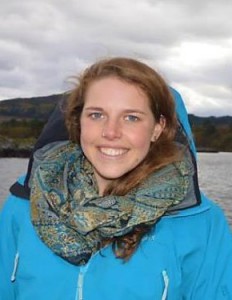
Heather Shepherd, BSc
Heather Shepherd, BSc graduated from Queen’s University, Ontario, Canada, in June 2014. She majored in psychology and neuroscience and completed her final year of study at the University of St. Andrews in Scotland on a full academic scholarship. Heather has sustained numerous concussions both in sport and in everyday activities which have affected all aspects of her life.
Attend the Early Career Development Course and Set Your Career on a Path to Success
Submitted by: Stephanie A. Kolakowsky-Hayner PhD, CBIST, Chair, Early Career Development Course Task Force of the Early Career Networking Group; Santa Clara Valley Medical Center, San Jose, CA
The ACRM Early Career Networking Group and Career Development Course Task Force would like to encourage all up-and-coming rehabilitation professionals to attend this year’s Early Career Development Course, Charting, Navigating, or Staying Your Career Course: Identifying and solidifying your role on a team. Preceding the ACRM Conference PIRR in Toronto on Wednesday, 8 October, this course will focus on developing and maintaining the essential skills needed to succeed in a team science environment. REGISTER NOW
SPECIAL pricing – ONLY $95 for Students and Early Career members.
We are excited to open the course with keynote speaker, Steven L. Wolf, PhD, PT, FAPTA, a world-renowned researcher, educator, author, and lecturer presenting, Conducting Team Science: Finding, Participating, and Solidifying Your Role on the Team. Participants will learn to identify barriers preventing clinician participation and collaboration within clinical studies, promote dissemination efforts, and anticipate how clinical interface activities might influence the tenure and promotion review process.
Dr. Wolf is a professor of Rehabilitation Medicine, Geriatrics, and Cell Biology at Emory University; and senior research scientist at the Atlanta VA Center of Excellence in Visual and Neurocognitive Rehabilitation.
An interactive panel of experts will follow, sharing tips and tricks on leadership styles and team building. The morning will conclude with a networking lunch designed to continue the conversations started within the earlier sessions in a more relaxed atmosphere.
The afternoon will kick-off with quick, back-to-back “news you can use” presentations from leading funding agency representatives, followed by an open forum where attendees can query our guests to receive answers to their most important funding questions. The afternoon will continue with a panel of successful Early Career Awardees who will share their experiences obtaining funding in this competitive funding climate.
The day will culminate with two 60-minute breakout sessions led by leaders in the field, and comprised of multiple course options, including:
- Developing Clinical/Research Teams
- Conducting Team Science
- Approaches to Team Writing
- Building a Mentorship Team
- Creating International Collaborations
- Leading/Managing a Team: What to look for when hiring
Last, but most certainly not least, attendees will be invited to wrap up the day with the “now famous” Early Career Reception in which you will have a chance to network informally with the speakers from the course, breakout facilitators, heads of all of the ACRM Special Interest and Networking Groups, leading journal editors and the ACRM leadership.
It will truly be an event not-to-be-missed! Don’t believe the organizers?? Hear what past participants have to say …
“The Early Career Development Course was a fantastic way to connect with other early career researchers plus the sessions with seasoned experts in the field made it very easy to approach them that day and throughout the conference. It was my first time at ACRM and I immediately felt like part of the organization.” ̶ ̶ Alison Cogan, PhD student, University of Southern California, Los Angeles
“This course offers important information across various areas of career development. Not only is there a broad range of professionals / academicians / researchers to learn from and talk with, but the break-outs provide a more intimate environment in which you can ask real, specific, pressing questions and access a great group that will help guide you. Guidance and mentorship is not easy to come by, so to have access to this group of rehab professionals is amazing!” ̶ Valerie Hill, Postdoctoral fellow, University of Southern California, Los Angeles


